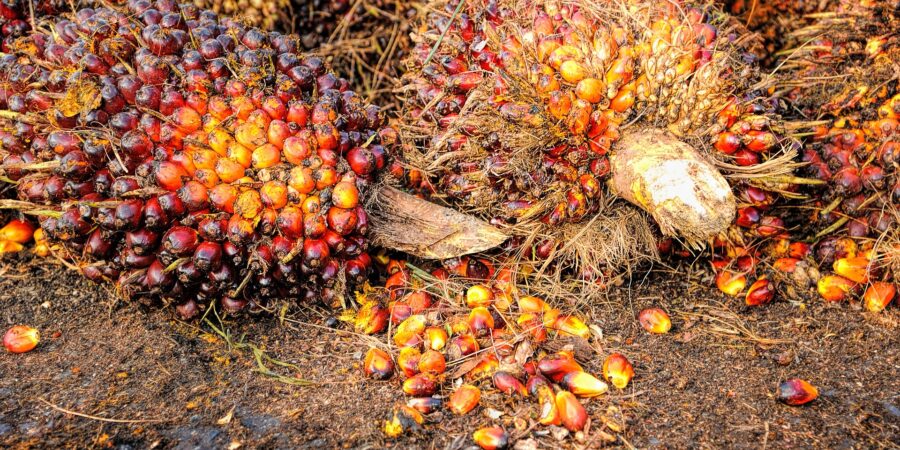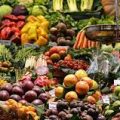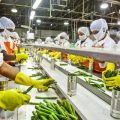Oil Palm Farming Business – Secured Investment for The Future – The story of how Malaysians came to Nigeria in the 1970s and bought improved oil palm seeds from us- to plant in their country- and are now the world’s second-largest producers of palm oil, while Nigeria, which used to be the first now lags far behind, has been repeated so many times – that I fear being accused of sounding like a broken record repeating it here.

But there is simply no way one can successfully talk about the opportunities in oil palm cultivation without mentioning the Nigerian-Malaysian experience. While Nigerians abandoned their oil palm fields at the wake of the crude oil boom of the 1970s, Malaysians went into massive cultivation and a guided production program for the crop.
Today, Malaysia is earning 18 billions of dollars annually from the export of palm oil! This means lots of money is being made by local Malaysian oil palm farmers, who are directly involved in the production of the crop. In Nigeria, the income opportunity from the crop is even greater.
Nigeria is presently not producing enough palm oil to meet local consumption. Infact, according to the Minister of Agriculture and Rural Development, Dr. Akinwumi Adesina, the country spends 500 million dollars yearly importing vegetable oil (mostly palm oil) from other countries.
Therefore, with a gap of over 350,000 tonnes per annum between local production and domestic demand for vegetable oil, farmers have no fear whatsoever about a possible glut of the product in the market, because both the domestic and export demands are huge and may never be completely met.
Considering the amazingly huge income and employment potential of oil palm farming, SuccessDigest wanted to find out all there is to know about the crop, its cultivation, and income potential. We took a visit to Shore Man Agro Farms in Ijede, Ikorodu area of Lagos State.
The farm, which was established in the early 1980s, combines both crop production (including oil palm) and animal husbandry. It is managed by Mr. Adesanya AbdulHakeem, a versatile crop production and animal rearing expert with over twenty years experience in farming – who holds an OND in Agricultural Engineering and HND in Crop Production and Horticulture.
He availed us of his expertise and experience in oil palm farming in this revealing interview.
What It Takes To Have An Oil Palm Farm:
There are three stages in the cultivation of oil palm. The first is the nursery stage, where you grow the seedlings in a nursery for a year. The second stage is the transfer of the seedlings to the farmland.
You will need large farmland, because oil palm trees need space – the correct distance between one palm stand and another for them to do well is about 9 meters. You will need to get good seedlings and make sure the farmland is well manured.
The third stage is the maintenance of the farm by weeding and clearing the land periodically, until about four to five years, when the plants start producing fruits.
Challenges in Cultivating Oil Palm:
Lack of adequate land: One of the major challenges confronting farmers in the cultivation of oil palm is the issue of getting adequate land to cultivate the crop, since the trees require significant spacing if they are to do well. However, one can overcome this challenge by negotiating with the community where you want to site the farm. You can even offer them partnership in the business, but make sure all agreements are properly documented.
Management: Another challenge the business faces is the ability to effectively manage the business. You need good management and maintenance of the farm. The grasscutters (insects) in the bush love palm trees. If you do not maintain your farm to the optimum level, grasscutters will destroy it. Before you know it, you will go to your farm one day and you will not find anything left. During the dry season grasscutters attack young palm trees and destroy them.
What we do to protect the young palm trees is that when you transplant you get wire net and use it to surround each stand, or you can get hunters to make traps around the farm to catch the grasscutters. The second option is possible if your farm is not large, otherwise, it will be difficult to make traps around the farm. How will you be able to make traps adequately round a farm that’s over 100 hectares?
You must endeavor to make your farm clean and weed free. By the time the trees reach 3 years grasscutters will no longer be able to destroy them again, they will have become so thick that grasscutters’ teeth will no longer be able to tear them.
Manuring the land: Another challenge is getting enough manure to use on the farm, depending on how large your farm is. Manuring is cheaper when compared to fertilizer. A bag of fertilizer right now is N5,500. So, how many can you buy to cover the whole farm? One bag can take approximately 10 palm trees. That will be too expensive.
Manure is not only cheap; it also retains the land more than fertilizer. Manure retains the land for more than 5 years, while fertilizer is just for one year. Poultry manure is the best, followed by that from cattle.
Other things you will have to ensure are maintenance, monitoring and checking of pilfering: by the time the plant starts to fruit, some people may be going to steal the fruits. That means you will need to have sound security personnel, who must be moving round the farm frequently, to prevent anyone from stealing your fruits.
Processing Of The Fruits

By the time the trees start producing fruits, you can then begin the processing. You can start from the local level if you cannot afford needed equipments and machines. The first year our trees started producing, we used the local method, which involves the use of mortar and legs to crush the fruits to remove the coat from the kernel. Now we use machines to crush it and we are working towards procuring more machines. It’s a continuous investment.
After processing, we sell the palm oil to people who come here to buy it. In fact, the book for it in advance and we cannot meet the demand. For the kernels, we sell them to firms producing Palm Kernel Oil (PKO). The selling price depends on the season as it fluctuates. We survey the market to know the prevailing price before selling.
How Lucrative Is Oil Palm Farming?

Oil palm cultivation is a very lucrative venture, even more than other crops. Although for the first four to five years you may not get anything, even though you will be spending money in maintaining the farm. But, when the plants start producing fruits, you can then begin to get something, back little by little, until the plants get to their peak. As the plant ages, it produces more fruits, and from 15 years it gets to its peak of production. This is when you will start getting back your investment in full, and will be able to pay back loans – if you took any. It will continue to produce, and can last for 50 to 200 years.
Oil palm production is definitely a good investment for the future, because nothing in oil palm production is wasted. From it we get palm oil and palm kernel (from which we get PKO). After processing the seeds to get oil, the residue left can be used as fuel for cooking and as fertilizer to the soil.
The fronds provide income opportunities for people weaving baskets, and the leaves are used for making brooms. You also get palm wine from the tree. Palm kernel cake, which is the leftover from extracting PKO from the seed, is used as animal feed. Also, the nutshells can be used as a source of energy, and as a raw material to produce such items as mosquito coil.
The uses to which oil palm can be made seem inexhaustive. That’s why it is a common saying that ‘everything in a palm tree is money’.
Oil palm farming is a project that requires lots of money and machinery. We have not got enough machines to use here. There are some machines that cost millions to buy that are used to process the palm fruits into oil. But we are still using [mainly] local methods. We need boilers, stressers, and other machines to transform industrial production, but these machines cost millions to get.
However, you do not need to have all the processing machines: if you cannot afford them, you can start with the little you have, or do your processing using local methods; and then gradually procure the machines.
Note: To go into this business, you will need the guidance of an Agricultural expert with experience in oil palm farming. You will also need to visit the Nigerian Institute for Oil Palm Research (NIFOR) for improved seedlings and more information about the crop.









